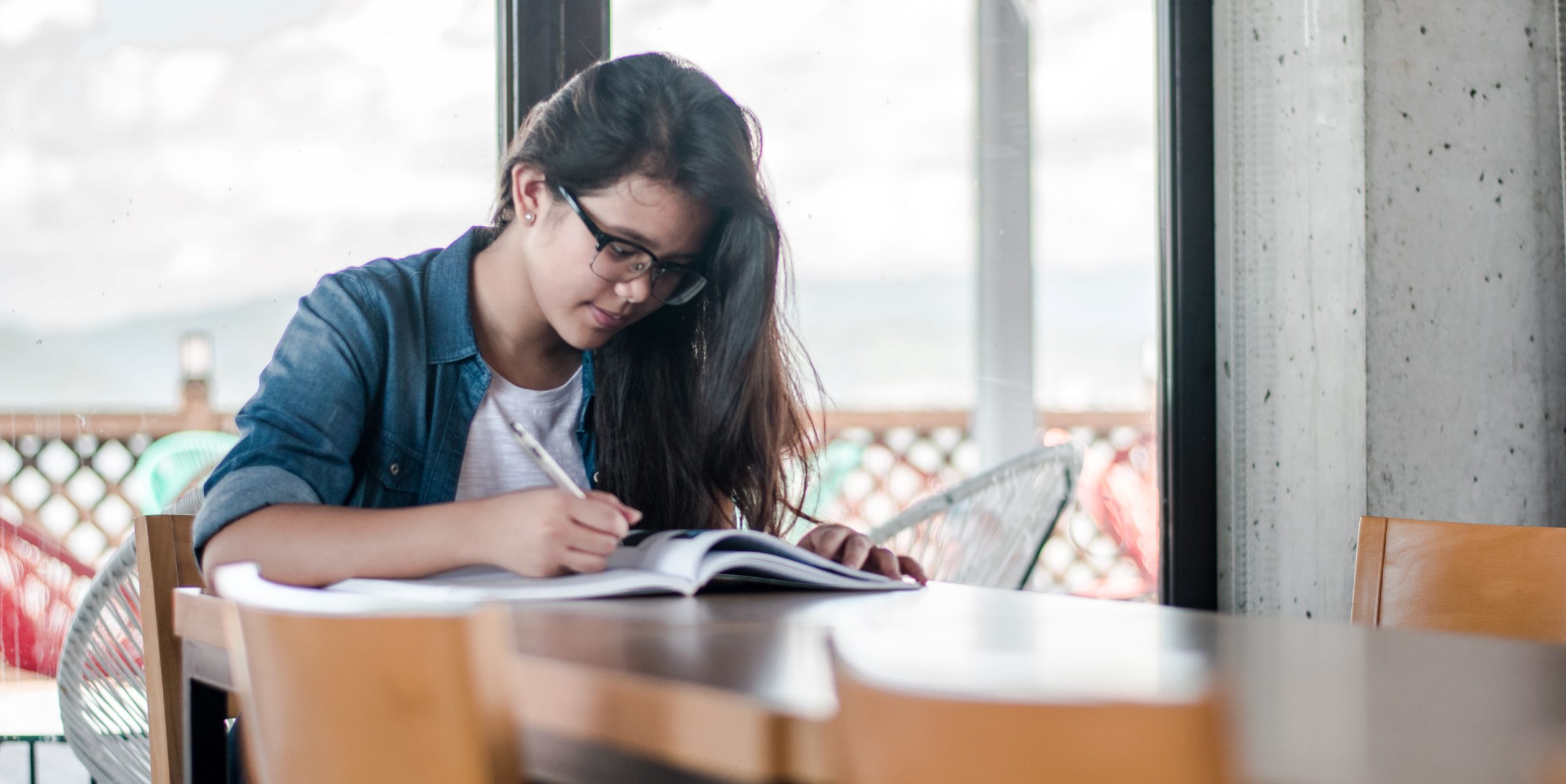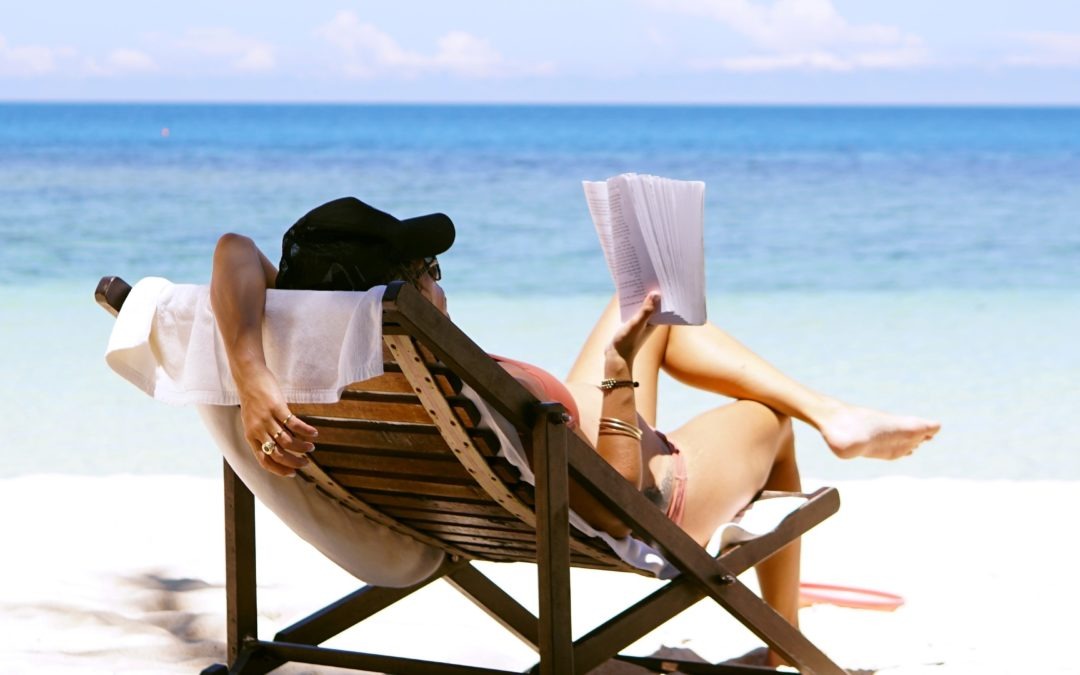
by rossanahead | Mar 8, 2012 | career, children, Education, family, Jing Lejano, parenting, technology, travel, woman
By Jing Lejano
When we started the Smart Super Women blog exactly one year ago, we never thought that we’d play witness to daredevil feats of adventures. We wanted to hear inspiring stories of mothers, daughters, sisters, warriors, peacemakers, intellects, vamps, homemakers, career rats, readers, adventurers, and dreamers who were going through their everyday lives. But we didn’t think that they’d do so with such daring and gumption.
Take the case of Mari-An Santos, a cum laude graduate of the University of the Philippines. We happily read about her trips to Thailand, when she suddenly revealed that she was packing her bags and moving to Romania! She had received a grant to pursue her Master’s degree in that European country. In her latest entry, she writes, “Studying in a foreign land has not only opened my eyes to the reality that I am a citizen of the world, it has made me appreciate my being Filipino all the more. Even as I learn about other peoples, cultures, and places, I have learned to value home even more.”
A collection of personal essays for and by women, the Smart Super Women blog was created to inspire its readers to tackle everyday challenges with courage and to work for the fulfillment of their dreams with conviction.
Most of the contributing writers are working mothers with school-aged children. They discuss such topics as careers and children, literacy and education, family and friends, and the quest for self-improvement. Because the writers contribute on a regular basis, readers have seen them tackle different challenges, resulting in a very interesting read.
There’s newspaper editor Gina Abuyuan, who never got around to traveling alone when she was single, but who finally had the nerve to roam the streets of Chiang Mai all by her lonesome now that she is “older, tougher, not afraid to tell someone off.” Her latest solo trip had her enjoying the sound of waves crashing at a beach side resort in the provinces. Oh, and may we add that she also recently opened a pub together with her life partner and some friends?
Of course, the adventures aren’t always of the adrenaline-pumping kind. Sometimes, we see these women finding epiphany in a cup of coffee shared with friends, in the few hours they sweat it out in the gym, or in the few minutes they spend with their children as they drive them to school.
But whether they’re raising their kids in the Philippines like writer Ruth Floresca, who’s a work-at-home mom to four boys, or juggling their time between career and home in Australia like editor Lyra Pore, who gets up at five in the morning to bring her daughters to the day care center, these women always find creative ways to make every opportunity a learning experience.
Ruth goes on date nights with her sons as a way of catching up with what’s going on in their lives. She writes, “It’s a continuous process, this getting to know one’s children because they grow up so fast and I don’t want to wake up one morning to find out that I don’t know anything about them anymore.”
Lyra Pore Villafana takes swimming lessons as a way of relaxing from the challenges of living an immigrant’s life. “Life overseas is so different to what we’ve all been used to… But doing something for oneself isn’t unique to Asian moms coping with the stresses of building a new life in a different country.”
Maridol Bismark bombards her sons with questions to learn her way in the digital world. She writes, “I work for an online entertainment portal. Every day, I am exposed to words and phrases that are just starting to make sense to me…I feel like a child lost in a newfangled world, groping for a hand to guide me. Fortunately, the hand belongs to the boy who appreciates everything that I’ve done and will still do for him.”
As these women continue on their journey to live, love, and learn in the modern age, Smart Super Women will be right alongside them, watching their every step, hoping to inspire others to live as fearlessly and as brilliantly as they do.

by rossanahead | Feb 15, 2012 | career, Education, Mari-an Santos, travel, woman
By Mari-An Santos
I was sitting at a popular restaurant in Bucharest, having lunch with a Romanian friend, and taking in the beautiful surroundings. There were blondes. There were brunettes. There were so many foreigners—and then it dawned on me, I am the foreigner. With my brown skin, small eyes, and jet black hair, I stood out like a sore thumb in a sea of Caucasians.
I’ve lived in the Philippines all my life. And because I’ve only traveled to nearby Asian countries, “looking different” had never been an issue for me. Now that I’m living in a European city that is not quite cosmopolitan, I find myself “looking different.” There are only a handful of Asians at the student dormitory where I live. I’ve seen a couple of Chinese and Japanese citizens, but that’s about it. The Filipino population here, not counting me and my schoolmate, is a measly 11.
On any given day, it’s not unusual to be gawked at on the street. I’ll be walking down the street and get stared at by my fellow pedestrians. I’ll be riding my bike to class and be greeted by “Ni hao” or “Sayonara.”
The other day, I was asking a shop owner about their products when she tells me that some of the soaps she makes contain Chinese teas. I politely tell her that it’s nice to know and that I am not Chinese. She apologizes and asks where I’m from.
At first, I was appalled by such occurrences, especially after someone told me that we Asians look alike. I explained to him that I could actually tell the Koreans from the Japanese, the Chinese from the Filipino. But eventually, I began to see things his way. From where I’m standing, I wouldn’t be able to tell the Europeans apart either.
And that’s perfectly fine.
Studying in a foreign land has not only opened my eyes to the reality that I am a citizen of the world, it has made me appreciate my being Filipino all the more. Even as I learn about other peoples, cultures, and places, I have learned to value home even more.
Photo by Kyle Gregory Devaras on Unsplash

by rossanahead | Feb 6, 2012 | career, Education, travel, woman
By Paula Bianca Abiog
Traveling is one of my favorite things to do, and I only realized I loved it when I was already working. I wasn’t able to travel much when I was a kid, since I didn’t have the means and my family wasn’t big on trips. Fortunately I found work in an industry that allows me to travel. Initially, I only went on work trips, but soon I was also planning my trips for leisure.
Since I started working, I’ve traveled to lots of places around the country, from Batanes up north to Zamboanga down south. What I love about traveling is that it gives you the chance to discover new places, try different kinds of food, face your fears, and learn more about yourself. Some of my most memorable trips are the ones that taught me a lot about myself. Just a few months after I graduated college, I was Boracay-bound—alone. It was a work trip for my first job. On my first night in Boracay, I cried in my hotel room. It was my first time to go anywhere alone, and immediately I felt very lonely. But the experience forced me to make new friends and be responsible for myself—I had to budget my money for food, and arrange my own boat transfers. By the end of that five-day work trip, the tears have dried up and loneliness was forgotten.
Soon after that trip to Boracay, I went on assignment to Zamboanga City. I knew I was still in the Philippines, but being there felt so different. I was in a predominantly Muslim city, and it was there where I learned to appreciate and respect the differences in our religions. Not to mention they had fantastic food over there, influenced by Indonesian and Malaysian cuisine.
A trip to Batanes, the northernmost province in the Philippines, helped clear my mind after a painful breakup. Hiking up the rolling hills of Marlboro Country, and watching the crashing waves where the Pacific Ocean and the South China Sea meet helped me gain some perspective. I came back to Manila feeling refreshed and ready to move forward.
Caving in Sagada, Mountain Province and “swimming” in the deep waters of Coron in Palawan, on the other hand, forced me to face my fears. The Lumiang-Sumaguing cave connection in Sagada took me four hours to finish, and it was a struggle to crawl, slide, and jump my way through the dark, slippery cave. In those four hours I felt like I was trapped the whole time, and I was constantly feeling panicky. Despite thinking that I won’t make it out of the cave alive, I felt delighted to have crossed the entire stretch of the cave connection.
In Coron, I realized I was terrified of not being able to touch the floor of the lake while keeping my head above water. I even had a full-fledged panic attack! The trip finally pushed me to take swimming lessons.
And my four-day vacation in Bangkok, my first trip in a different time zone, taught me how to properly plan for a trip—from booking plane tickets to arranging for accommodations and hotel transfers, and everything else in between. It also taught me to just wing it—while my travel buddy and I had a detailed itinerary prepared, you have to allow yourself some time to get lost and go with the flow.
Traveling for me is more than just an escape from my busy life in Manila. It gives me fresh ideas, forces me to think things through, and teaches me things I wouldn’t have picked up while sitting in my office cube. The reasons are more than enough to get me travel bugged.
Photo by Chen Mizrach on Unsplash

by rossanahead | Nov 17, 2011 | family, Gina Abuyuan, parenting, travel, woman
By Gina Abuyuan
Writer and editor Alya Honasan takes pride in her annual solo getaways. She’s a diver, and for about a decade now, she embarks on dive trips—Palawan, Palau, Australia—by herself. It’s invigorating, she says. And the feeling of freedom and independence is like no other.
When I was single, I never had the courage to take off the way Alya does, even though I daydreamed about it. Hitch-hiking across the Philippines, setting up a tent alone on a beach, discovering Sagada on my own–I thought about all doing those things, but never had the balls to carry them out. I stand barely five feet, a tad gullible, and sometimes too shy to speak out in case I offend someone (although people close to me are sure to contest that)—not an ideal formula for a solo female traveller.
These days, though—older, tougher, not afraid to tell someone off–I can pretty much hold my own. I’ve travelled to Camarines Norte and Palawan alone, downed drinks in bars alone, and roamed the backstreets of Chiang Mai alone. The latest solo trip I took was the one to Marabut, Samar, for a much needed break after a weighty assignment interviewing farmers affected by climate change in Southern Leyte.
I chose Caluwayan Resort, a three-star resort with four villas and two open cottages fronting the beach. Since I didn’t have the budget to rent a villa (P5,000 a night), I opted for the open cottage—and when I say open, I mean open. It’s a gazebo walled-in by a white canvas tied to the posts. The “door” is a double layered curtain of canvas and gauze. There’s a double bed and a side table. It may sound bare, but it was actually quite comfortable. I felt like I was sleeping in my own room, with the bonus of the sound of waves and natural breeze. Magical.
That said, there are certain things you need to remember if you choose to go on a solo holiday. Here are the most important:
- Make sure your kids, husband or partner, or a close friend knows where you’re going. Show them the web site and give them the contact details. Tell them when you plan to leave, and your ETA back in your hometown.
- Keep your mobile phone on (even if it’s on silent) all the time. If the signal’s wonky (as it is in Samar), inform them so they don’t worry.
- Bring medication if you’ve got a condition that calls for it. I’m asthmatic, so I bring at least two inhalers with me, plus anti-histamines. Inform the restaurant or the cook of any allergies, so they don’t mix any crab or shrimp or lobster (in my case, that is) in your food.
- Bring along a self-defense weapon and know how to use it. This can be a pepper spray, a taser, or a small knife.
- Don’t attract attention. It’s inevitable that a man/men will want to chat you up or be curious on your solo status. I choose not to make eye contact if I sense a man is trying to catch my attention, and I clothe myself in a “leave me alone” aura. I also make it a point to let the receptionist or waiter or boatman know that I’m married (or at least, partnered) and have three children. This is my way of saying, “Yes, people will look for me if I disappear.”
- Don’t get inebriated. No explanation needed.
Some moms may think that this is a little extreme—alone time away, hundreds of kilometers from home, when an hour at the spa can do the trick. There comes certain instances, though, certain valleys in one’s psychological, emotional, and physical health patterns, that can only be cured by a literal change of pace and scenery. Like Alya’s—and if you are so inclined—you can treat yourself to a solo holiday once a year. Let go of the guilt, plan it well, involve the help and understanding of your partner, support group, and kids. Take it from me: you will come back renewed and refreshed. You won’t regret it, and—seeing what good it did Mom–neither will your partner and children.
Photo by averie woodard on Unsplash
by rossanahead | Apr 3, 2011 | family, Jing Lejano, parenting, travel, woman
By Jing Lejano
When I first took a vacation with my sisters many, many years ago, I had to be persuaded. At the time, the idea of going on vacation without my children was foreign to me. We always went everywhere together, which meant, of course, that I was never able to have a proper vacation.
It starts with the packing. I had to make sure that everybody had the appropriate number of shirts and shorts and jammies and undies. If we were traveling somewhere warm, then swimsuits and towels and sunscreen and burn ointments must be taken care of. If we were traveling somewhere cold, then jackets and pants are mandatory. We’re not even talking about their vitamins and medicines, and when we still had a baby, diapers and bottles.
I remember running after them on the beach, making sure they didn’t go too far from the shore. I remember walking behind them as they ran through hills, making sure nobody loses a footing—and being there if by chance they do. I remember feeding them, bathing them, and then putting them all to sleep, and remembering that hey, we are actually on vacation. Or at least, they are.
It wasn’t until years later that I realized that I needed a break—badly. And that’s when it dawned on me: I have to go on vacation, a real one!
On our first day out, I was so happy not to be bothered by the knock of little fingers while I was in the bathroom. It was an absolute joy not to have any itinerary or any real agenda. I slept. I ate. I swam. I lied down on the sand, and made castles. It was glorious!
Today, I know better. Whether it’s a three-day trip or a two-hour appointment at the spa, I know that the best way that I could take care of my children is to take care of myself first.
by rossanahead | Apr 2, 2011 | family, travel, woman
By Jenny Bonto
No balikbayan experience wouldn’t be complete without a reunion – whether of the family, your high school class, college barkada, or former colleagues at work. These get-togethers can even be considered the be-all and end-all of one’s trip back home.
In the Philippines, anything, and we mean anything, can be a cause for coming together and enjoying each others’ company. In sickness and in health, for richer or poorer, from conception till death, we Pinoys love company. So a reunion would always be in order whether its a child’s baptism or an elder’s wake, a birthday or a death anniversary and anything in between.
Sometimes, the mere arrival of a balikbayan triggers a reunion, especially if paid for by the balikbayan himself.
There are, of course, grand family reunions of such scale and magnitude to rival the Olympics. These are the clan gatherings held once every three to five years and involving at least three generations and several branches of the family tree. These are the type of family reunions that see family members wearing specially-designed t-shirts, performing various cultural numbers (although that doesn’t count for much in this age of “magic sing”), and consuming enough food to feed half of the African continent.
These are the reunions we go home to. The ones we are usually asked to fund.
So for the smart woman, here are some guidelines for your next reunion back home:
* Small is beautiful. Grand reunions are stressful, whole-day affairs where you hardly get to talk or get acquainted with others. An intimate lunch or dinner with select members of the family or friends is often more meaningful and enjoyable, not to mention easy on the pocket.
* There’s no such thing as enough food. Filipinos love food both in quantity and quality. Be prepared; family reunions usually start at lunch stretching all the way past merienda, sometimes even till dinnertime. If Pinoys love eating, so do they cooking. So go ahead and do a potluck.
* Try a restaurant. Reunions are traditionally held in some family member’s or friend’s big house. But a restaurant with a good buffet table or an events venue with your caterer of choice is just as good. It migh be a tad more expensive but considering the less hassle of someone else worrying about the house, the food, the dishwashing, and the parking space, I’d say it’s worth it.
* Ditch the videoke. Filipinos love music. Unfortunately, it doesn’t always work vice versa. A videoke or “magic sing” makes everyone think they’re the next Pinoy Idol. So if you don’t want your reunion constantly marred by someone’s booming falsetto, better stick to an ordinary microphone. Unless, of course, it’s your singing you want them to hear.
* Don’t forget the politics of pasalubong and pabalot. A balikbayan without pasalubong is as unthinkable as a reunion without leftover pabalot. The pasalubong itself is of little regard. It can be a can of Spam, a pair of socks, or a second-hand bag bought in a garage sale. In the same light, the pabalot can be anything: a slice of puto, a plastic bag of kare-kare, a llanera of leche flan, or the lechon’s head. What is important is the thought of being remembered and appreciated.
The main thing about reunions, though, is that they are meant to be fun and memorable. That’s what makes a reunion so priceless.




